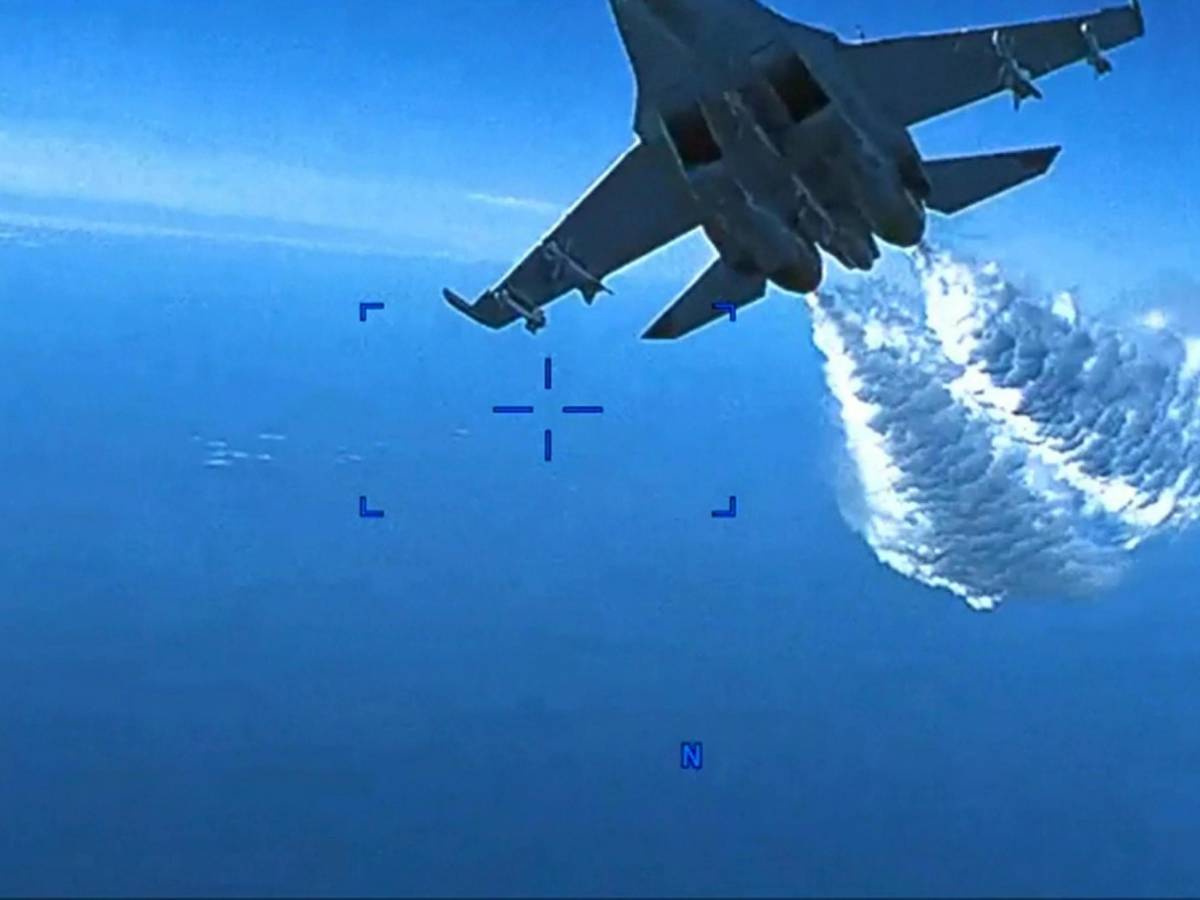Matryoshka effect. The Russian weapons seized by the Ukrainians turned out to be full of American chips. When Ukrainian forces began to dismantle several captured or partially destroyed pieces of Russian military equipment, they discovered a powerful component of foreign microchips, mainly produced in the United States. The revelations of Ukrainian intelligence components were shared with The War Zone, opening up two important questions: Is Russia unable to produce technically advanced components for its war machine? Can the United States keep such technologies safe?
Harpoon missiles and M109 howitzers, new weapons arrive in Ukraine. Kyiv: “High-quality equipment”
Chips in different weapons
These chips are found, for example, inside a radar-equipped 9S932-1 air defense command center vehicle that is part of the larger Barnaul-T system, the Pantsir air defense system, the Ka-52 “Alligator” helicopter, and the Kh-101 cruise missile (AS- 23A Kodiak). In the vehicle of the Barnaul-T air defense command center, Ukrainian intelligence said that specialists found eight microchips from American manufacturers such as Intel, Micrel, Micron Technology and Atmel Corp. in its communication systems.
Ukrainian specialists also found five American-made chips – manufactured by AMD, Rochester Electronics, Texas Instruments and Linear Technology – in the deflectors of the Pantsir air defense system. At least 35 US-made chips have been found in the Kh-101 cruise missile, including those made by Texas Instruments and Atmel Corp. Rochester Electronics, Cypress Semiconductor, Maxim Integrated, XILINX, Infineon Technologies, Intel, Onsemi, Micron Technology.
When Ukrainian specialists opened the Ka-52 Alligator tower’s photovoltaic system, they found 22 American-made and one Korean-made chip. US manufacturers included Texas Instruments, IDT, Altera USA, Burr-Brown and Analog Devices Inc. and Micron Technology, Linear Technology, and TE Connectivity.
Were there any breaches or recycled chips?
The origin of the microchips found in these Russian weapons is unclear. These chips should not necessarily be purchased directly from the manufacturers. While the US and many other countries have imposed sanctions after Russia launched its massive invasion on February 24 that prevented them from selling them equipment including microchips, there is no indication that any of the chips in these Russian assets have been seized. . . or destroyed have violated any of these provisions. IDT was acquired by Japan’s Renesas in 2019. Microchip Technology Incorporated acquired Micrel in 2015. Atmel Corp. was also acquired by Microchip Technology in 2016. Cypress Semiconductor Corp., on the other hand, was acquired by Infineon Technologies. Altera was acquired by Intel in 2015. Texas Tools bought Burr-Brown in 2000. In addition, there is a huge and largely unregulated market for recycled chips, mostly from China, and many more, and it seems very old.
Even the Ukrainian intelligence officials who provided the parts list couldn’t tell where the chips came from, but Skip Parish, an expert on counter rails / direct energy weapons / electronic warfare / the NATO and US Army Red Team, saw the list of components provided by Ukrainian intelligence and said they It raises a number of issues. These include “complete reliance on Western technology” in applications for “chipsets embedded in key critical working parts of Russian weapons systems: aiming, navigation, communications, and weapons execution” but also “US failures or non-existent controls” in regulations on international arms trade, “to support investigations when found in foreign weapons.
Were the sanctions imposed on Russia circumvented?
On May 11, Commerce Secretary Gina Raimondo told a Senate hearing that sanctions against Russia are forcing it to look for alternative sources of key ingredients. “We have reports from the Ukrainians that when they found Russian military equipment on the ground, it was filled with semiconductors, which they removed from dishwashers and refrigerators,” Raimondo testified. While components in hardware, for example, are difficult to prevent from falling into the wrong hands, Parrish said, US officials have the authority to prevent the shipment of these dual-use chips if they believe the application has important military uses. He said this highlights and presents the need for a “clear path to stopping Russian weapons success without them being there”, and an “internal crash program to stop technology shipments” from US allies Australia, Canada, New Zealand and the United States. Kingdom, known collectively as the “Five Eyes”.
While Raimondo testified that Ukraine claimed that the Russians used parts of the hardware in its tanks, it is possible – Parrish said – that this is not the case in the more sensitive systems created by Ukrainian intelligence. For example, the “target optics of the Ka-52 armed helicopter and missile guidance systems” is alarming. Several microchip manufacturers contacted by The War Zone said they no longer do business with Russia. Many said they don’t know or can’t control where their chips go. One company disputed a Ukrainian intelligence claim that its chips were found in Russian military equipment. For example, an Onsemi spokesperson noted that his company’s chips are not military, so they are easily obtainable.
Intel: “We do not deal with Russia”
Intel said that while it may not know where its chips are going, it no longer deals with Russia or Belarus. “While we do not always know or control which products our customers create or which applications end users can develop, Intel does not support or tolerate the use of our products in violation of human rights,” said Benny Bruce, Director of Communications. Intel companies. “When we become aware of concerns that Intel products are being used by a business partner in connection with human rights abuses, we will limit or stop working with the third party until and unless we have significant confidence that Intel products are not being used in violation of human rights,” he said. Bruce said Intel “has suspended all shipments to customers in both Russia and Belarus.” Additionally, “Intel will continue to comply with all applicable export regulations and sanctions in the countries in which it operates; This includes compliance with sanctions and export controls against Russia and Belarus issued by the United States and allied countries.”
China Impact: Leading Producer (and Recycler)
Analog Devices is also “committed to fully complying with US, EU and other laws, including export controls, trade sanctions and regulations,” said Verda Milan, a company spokeswoman. It is unclear how concerned the Commerce Department is about the microchips that Ukrainian intelligence said were found in Russian air defense systems, helicopters and cruise missiles. Ukraine says Russia’s outdated components, particularly the Kh-101, make it less effective. But given Russia’s reliance on the large number of microchips, semiconductors and other components in circulation – and its close relationship with China, one of the major producers and recyclers of these parts – the long-term effects of sanctions, at least for high-tech components such as chips, remain to be seen. see it.
© Reproduction reserved

“Prone to fits of apathy. Introvert. Award-winning internet evangelist. Extreme beer expert.”



